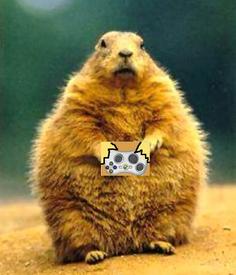65% of women in U.S. have eating disorders

yoginimary
Posts: 6,789 Member
http://www.news-medical.net/?id=37616
65% of women in U.S. have eating disorders
Published: Tuesday, 22-Apr-2008
Women's Health News
Sixty-five percent of American women between the ages of 25 and 45 report having disordered eating behaviors, according to the results of a new survey by SELF Magazine in partnership with the University of North Carolina at Chapel Hill.
An additional 10 percent of women report symptoms consistent with eating disorders such as anorexia, bulimia nervosa and binge eating disorder, meaning that a total of 75 percent of all American women endorse some unhealthy thoughts, feelings or behaviors related to food or their bodies.
"Our survey found that these behaviors cut across racial and ethnic lines and are not limited to any one group," said Cynthia R. Bulik, Ph.D., William and Jeanne Jordan Distinguished Professor of Eating Disorders in the UNC School of Medicine's department of psychiatry and director of the UNC Eating Disorders Program. "Women who identified their ethnic backgrounds as Hispanic or Latina, white, black or African American and Asian were all represented among the women who reported unhealthy eating behaviors."
"What we found most surprising was the unexpectedly high number of women who engage in unhealthy purging activities," said Bulik, who is also a nutrition professor in the School of Public Health. "More than 31 percent of women in the survey reported that in an attempt to lose weight they had induced vomiting or had taken laxatives, diuretics or diet pills at some point in their life. Among these women, more than 50 percent engaged in purging activities at least a few times a week and many did so every day."
Lucy Danziger, the editor-in-chief of SELF Magazine said: "SELF's investigation will help our 5.8 million readers determine whether their eating habits could be considered disordered, and the survey results show that more women than expected will identify with various disordered eating behaviors," said "Recognizing what's normal and what's dangerous is the first step all women can take in developing a more positive body image and a healthier approach to food."
Although the type of disordered eating behaviors the survey uncovered don't necessarily have potentially lethal consequences like anorexia or bulimia nervosa, women report they are associated with emotional and physical distress. And despite the stereotype that eating issues affect mostly young women, the survey found that those in their 30s and 40s report disordered eating at virtually the same rates. Findings show that:
* 75 percent of women report disordered eating behaviors or symptoms consistent with eating disorders; so three out of four have an unhealthy relationship with food or their bodies
* 67 percent of women (excluding those with actual eating disorders) are trying to lose weight
* 53 percent of dieters are already at a healthy weight and are still trying to lose weight
* 39 percent of women say concerns about what they eat or weigh interfere with their happiness
* 37 percent regularly skip meals to try to lose weight
* 27 percent would be "extremely upset" if they gained just five pounds
* 26 percent cut out entire food groups
* 16 percent have dieted on 1,000 calories a day or fewer
* 13 percent smoke to lose weight
* 12 percent often eat when they're not hungry; 49 percent sometimes do
Eating habits that women think are normal - such as banishing carbohydrates, skipping meals and in some cases extreme dieting - may actually be symptoms of disordered eating.
The online survey garnered responses from 4,023 women who answered detailed questions about their eating habits. Results and analysis appear in SELF's May 2008 issue, on newsstands from today (April 22) through May 19. SELF and UNC's goal was to discover the unfiltered reality of the eating habits of American women, and ultimately, to help women develop less obsessive, more accepting attitudes toward their bodies and a healthier relationship with food, Danziger said.
SELF's report includes tips to help all women even out their behavior by adopting a moderate approach to eating. Tips for staying healthy include: separating mood from food; eliminating extreme thinking; eating breakfast; and finding realistic body role models.
Bulik and study co-author Lauren Reba-Harrelson, a third year clinical psychology graduate student in UNC's College of Arts and Sciences, will give a presentation about the survey and their collaboration with SELF on May 17 at the Academy for Eating Disorders' 2008 International Conference on Eating Disorders in Seattle.
Women can take a version of the survey at http://www.self.com to see how they compare with other readers' answers and share their thoughts in the Hot Topics section of the magazine's Web site.
For more information about the UNC Eating Disorders Program, visit http://www.unceatingdisorders.org. For general facts about eating disorders visit the Academy for Eating Disorders Web site at http://www.aedweb.org.
http://www.unc.edu/
Renew your relationship with food. Food is not the enemy. This is really sad
Mary
65% of women in U.S. have eating disorders
Published: Tuesday, 22-Apr-2008
Women's Health News
Sixty-five percent of American women between the ages of 25 and 45 report having disordered eating behaviors, according to the results of a new survey by SELF Magazine in partnership with the University of North Carolina at Chapel Hill.
An additional 10 percent of women report symptoms consistent with eating disorders such as anorexia, bulimia nervosa and binge eating disorder, meaning that a total of 75 percent of all American women endorse some unhealthy thoughts, feelings or behaviors related to food or their bodies.
"Our survey found that these behaviors cut across racial and ethnic lines and are not limited to any one group," said Cynthia R. Bulik, Ph.D., William and Jeanne Jordan Distinguished Professor of Eating Disorders in the UNC School of Medicine's department of psychiatry and director of the UNC Eating Disorders Program. "Women who identified their ethnic backgrounds as Hispanic or Latina, white, black or African American and Asian were all represented among the women who reported unhealthy eating behaviors."
"What we found most surprising was the unexpectedly high number of women who engage in unhealthy purging activities," said Bulik, who is also a nutrition professor in the School of Public Health. "More than 31 percent of women in the survey reported that in an attempt to lose weight they had induced vomiting or had taken laxatives, diuretics or diet pills at some point in their life. Among these women, more than 50 percent engaged in purging activities at least a few times a week and many did so every day."
Lucy Danziger, the editor-in-chief of SELF Magazine said: "SELF's investigation will help our 5.8 million readers determine whether their eating habits could be considered disordered, and the survey results show that more women than expected will identify with various disordered eating behaviors," said "Recognizing what's normal and what's dangerous is the first step all women can take in developing a more positive body image and a healthier approach to food."
Although the type of disordered eating behaviors the survey uncovered don't necessarily have potentially lethal consequences like anorexia or bulimia nervosa, women report they are associated with emotional and physical distress. And despite the stereotype that eating issues affect mostly young women, the survey found that those in their 30s and 40s report disordered eating at virtually the same rates. Findings show that:
* 75 percent of women report disordered eating behaviors or symptoms consistent with eating disorders; so three out of four have an unhealthy relationship with food or their bodies
* 67 percent of women (excluding those with actual eating disorders) are trying to lose weight
* 53 percent of dieters are already at a healthy weight and are still trying to lose weight
* 39 percent of women say concerns about what they eat or weigh interfere with their happiness
* 37 percent regularly skip meals to try to lose weight
* 27 percent would be "extremely upset" if they gained just five pounds
* 26 percent cut out entire food groups
* 16 percent have dieted on 1,000 calories a day or fewer
* 13 percent smoke to lose weight
* 12 percent often eat when they're not hungry; 49 percent sometimes do
Eating habits that women think are normal - such as banishing carbohydrates, skipping meals and in some cases extreme dieting - may actually be symptoms of disordered eating.
The online survey garnered responses from 4,023 women who answered detailed questions about their eating habits. Results and analysis appear in SELF's May 2008 issue, on newsstands from today (April 22) through May 19. SELF and UNC's goal was to discover the unfiltered reality of the eating habits of American women, and ultimately, to help women develop less obsessive, more accepting attitudes toward their bodies and a healthier relationship with food, Danziger said.
SELF's report includes tips to help all women even out their behavior by adopting a moderate approach to eating. Tips for staying healthy include: separating mood from food; eliminating extreme thinking; eating breakfast; and finding realistic body role models.
Bulik and study co-author Lauren Reba-Harrelson, a third year clinical psychology graduate student in UNC's College of Arts and Sciences, will give a presentation about the survey and their collaboration with SELF on May 17 at the Academy for Eating Disorders' 2008 International Conference on Eating Disorders in Seattle.
Women can take a version of the survey at http://www.self.com to see how they compare with other readers' answers and share their thoughts in the Hot Topics section of the magazine's Web site.
For more information about the UNC Eating Disorders Program, visit http://www.unceatingdisorders.org. For general facts about eating disorders visit the Academy for Eating Disorders Web site at http://www.aedweb.org.
http://www.unc.edu/
Renew your relationship with food. Food is not the enemy. This is really sad
Mary
0
Replies
-
http://www.news-medical.net/?id=37616
65% of women in U.S. have eating disorders
Published: Tuesday, 22-Apr-2008
Women's Health News
Sixty-five percent of American women between the ages of 25 and 45 report having disordered eating behaviors, according to the results of a new survey by SELF Magazine in partnership with the University of North Carolina at Chapel Hill.
An additional 10 percent of women report symptoms consistent with eating disorders such as anorexia, bulimia nervosa and binge eating disorder, meaning that a total of 75 percent of all American women endorse some unhealthy thoughts, feelings or behaviors related to food or their bodies.
"Our survey found that these behaviors cut across racial and ethnic lines and are not limited to any one group," said Cynthia R. Bulik, Ph.D., William and Jeanne Jordan Distinguished Professor of Eating Disorders in the UNC School of Medicine's department of psychiatry and director of the UNC Eating Disorders Program. "Women who identified their ethnic backgrounds as Hispanic or Latina, white, black or African American and Asian were all represented among the women who reported unhealthy eating behaviors."
"What we found most surprising was the unexpectedly high number of women who engage in unhealthy purging activities," said Bulik, who is also a nutrition professor in the School of Public Health. "More than 31 percent of women in the survey reported that in an attempt to lose weight they had induced vomiting or had taken laxatives, diuretics or diet pills at some point in their life. Among these women, more than 50 percent engaged in purging activities at least a few times a week and many did so every day."
Lucy Danziger, the editor-in-chief of SELF Magazine said: "SELF's investigation will help our 5.8 million readers determine whether their eating habits could be considered disordered, and the survey results show that more women than expected will identify with various disordered eating behaviors," said "Recognizing what's normal and what's dangerous is the first step all women can take in developing a more positive body image and a healthier approach to food."
Although the type of disordered eating behaviors the survey uncovered don't necessarily have potentially lethal consequences like anorexia or bulimia nervosa, women report they are associated with emotional and physical distress. And despite the stereotype that eating issues affect mostly young women, the survey found that those in their 30s and 40s report disordered eating at virtually the same rates. Findings show that:
* 75 percent of women report disordered eating behaviors or symptoms consistent with eating disorders; so three out of four have an unhealthy relationship with food or their bodies
* 67 percent of women (excluding those with actual eating disorders) are trying to lose weight
* 53 percent of dieters are already at a healthy weight and are still trying to lose weight
* 39 percent of women say concerns about what they eat or weigh interfere with their happiness
* 37 percent regularly skip meals to try to lose weight
* 27 percent would be "extremely upset" if they gained just five pounds
* 26 percent cut out entire food groups
* 16 percent have dieted on 1,000 calories a day or fewer
* 13 percent smoke to lose weight
* 12 percent often eat when they're not hungry; 49 percent sometimes do
Eating habits that women think are normal - such as banishing carbohydrates, skipping meals and in some cases extreme dieting - may actually be symptoms of disordered eating.
The online survey garnered responses from 4,023 women who answered detailed questions about their eating habits. Results and analysis appear in SELF's May 2008 issue, on newsstands from today (April 22) through May 19. SELF and UNC's goal was to discover the unfiltered reality of the eating habits of American women, and ultimately, to help women develop less obsessive, more accepting attitudes toward their bodies and a healthier relationship with food, Danziger said.
SELF's report includes tips to help all women even out their behavior by adopting a moderate approach to eating. Tips for staying healthy include: separating mood from food; eliminating extreme thinking; eating breakfast; and finding realistic body role models.
Bulik and study co-author Lauren Reba-Harrelson, a third year clinical psychology graduate student in UNC's College of Arts and Sciences, will give a presentation about the survey and their collaboration with SELF on May 17 at the Academy for Eating Disorders' 2008 International Conference on Eating Disorders in Seattle.
Women can take a version of the survey at http://www.self.com to see how they compare with other readers' answers and share their thoughts in the Hot Topics section of the magazine's Web site.
For more information about the UNC Eating Disorders Program, visit http://www.unceatingdisorders.org. For general facts about eating disorders visit the Academy for Eating Disorders Web site at http://www.aedweb.org.
http://www.unc.edu/
Renew your relationship with food. Food is not the enemy. This is really sad
Mary0 -
Thanks for posting this.
OK, OK . . .bringing out my soapbox. . .
What the hell happened to the women's movement? How did we go from seeking equal power to literally starving ourselves into paranoia and helplessness? Sorry guys, but this is a female issue. For now, although male celebrities are getting smaller everyday.
Food is not the enemy. . .food is the strength you need to live a life to your fullest potential. Food, good, whole, nutritious food is your friend, people!
Starving doesn't work (let alone smoking. . .this is huge in my skinny-minnie neighborhood among the young starving fashionistas).
Eating does. Good food, in sensible portions, often.
:flowerforyou:0 -
Count me in as one of the many! I now have a healthy relationship with food, especially thanks to this site, but it is a lot of unlearning and not paying attention to the skinny models. Health is in! Both mental and physical.
Thank you for posting, it is very interesting yet very sad.
Kkmama0 -
funny that you posted this this morning , just got off the phone with my boyfriend telling me I had an eating disorder LOL
Just because I want to make educated choices on what goes into my body
Just because I dont trust everything that goes into food that is fed to americans
Just because I believe that It is MY choice
Just because I think that "the powers that be" making all the food what humans to be unhealthy
Just because I want to live long and harrass my children as long as I can
that makes me have an eating disorder
then YIPPIE ,,, funny how eating right is an eating disorder same as bulimia (sp) and anerexia(sp)
soooooooooooooooooo what .... now off to my fat free YUMMIE granola !! 0
0 -
Soooooooooooo I took the QUIZ ...
I scored a 22 , high risk for having an eating disorder .... I basically used my whole life when I answered these questions , so this doesnt really surprise me ... I am not like that now , but anyways the questions are very general and doesnt really make a clear seperation of present from past0 -
Although I agree with your point that the questions in the survey don't distinguish the past from the present. . .. there's a lot of "have you ever?", the target audience for the survey is Self's demographic, which is young women up to 25.
Eating right is not disordered eating, but an unhealthy obsession with food is. In my opinion, if you're spending your life thinking about food and your weight, then that's preventing you from doing other things.
Psychologists are now recognizing obsessive behavior about eating the "right foods" as orthorexia, and an eating disorder.
I think that we're all here because we're trying to change our relationship with food. And, I think it's inarguable that as a society, we're totally a mess when it comes to food.
Oh, and in the interest of full disclosure. . .I scored a 37. Mostly due to the "have you ever" questions, which thank god, I did seek professional help for. I think it's wonderful that a fairly mainstream magazine is devoting time to this issue, instead of just publishing pictures of stick-insect models with the unspoken message that their readers need to conform to that image.0 -
I scored 39.0
-
I scored 39.
At 19 years, time to rethink your relationship with food - which is, I hope, why you're here. :flowerforyou:0 -
i scored 35.. kinda scary0
-
Good article. Found the quiz.
http://www.self.com/calculatorsprograms/polls/eating_disorder/disorder
From another article
http://www.self.com/fooddiet/2008/04/eating-disorder-riskThe online SELF survey garnered responses from 4,000 women ages 25 to 45 to a detailed questionnaire about their eating habits and found that most disordered eaters fall into one or more of six categories. Calorie prisoners are terrified of gaining weight, tend to see food as good or bad and feel extremely guilty if they indulge in something that's off-limits. Secret eaters binge on junk food at home, in the car—wherever they won't be found out. Career dieters may not know what to eat without a plan to follow; despite their efforts, they're more likely than other types to be overweight or obese. Purgers are obsessed with ridding their body of unwanted calories and bloat by using laxatives, diuretics or occasional vomiting. Food addicts eat to soothe stress, deal with anger, even celebrate a happy event; they think about food nearly all the time. Extreme exercisers work out despite illness, injury or exhaustion and solely for weight loss; they are devastated if they miss a session. Like Marsh, who Bulik describes as a calorie prisoner and an exercise addict, many disordered eaters piece together a painful mix of destructive habits. Others may shift between categories over the years, ricocheting from restricting to bingeing to purging, for instance.0 -
I scored a 7, it's a good thing I never learned from my mom (she's like crazy paranoid about food and only cares about numbers on a scale). I don't believe I have body image issues just have problems with underestimating the amount of cals I consume a day (doesn't everyone :laugh:) and stress/anxiety issues (not about weight). But I'm really surprised by this statistics. That's A LOT of women!0
-
good lord...lol i scored a 46 :ohwell: wtf lol...most of it was past time experiences but my goodness lol0
-
I scored an 80
-
I took it twice I was low risk and slight risk. I had to look up excessive exercise it was defined as....
Working out for more than 2 hours daily repeatedly. Exerciding to the point of pain and when sick or injured. http://www.brainphysics.com/exercise-addiction.php
So I changed my answer from yes to no which put me at low risk.0 -
i think this is a male issue as well, men have just been socialized to not discuss their issues so it isn't as obvious even through research. i think a goog proportion of the western world has an eating disorder...which sucks, and it goes back my feelings about food being more of a social thing than a nourishing thing.0
-
i think this is a male issue as well, men have just been socialized to not discuss their issues so it isn't as obvious even through research. i think a goog proportion of the western world has an eating disorder...which sucks, and it goes back my feelings about food being more of a social thing than a nourishing thing.
I also think there's a lot less pressure on men to be thin or a healthier weight and that's all over the world at least today. It's more acceptable for a guy to have a beer belly than a girl to have a chubby waist. My mom told me to lose weight so I can get a boyfriend (why would you want a boyfriend who only likes you for your appearance?) -.-;;. I've heard my friends tell me that their mom's tell them that they're too fat all the time. My father has never told me such a thing ever and got annoyed at my mom for saying that (she constantly says it too). I'm surprised that I don't already have an eating disorder.
Girls are just way more judgmental on other girls than they are on boys (doesn't matter what the age difference).0 -
i think this is a male issue as well, men have just been socialized to not discuss their issues so it isn't as obvious even through research. i think a goog proportion of the western world has an eating disorder...which sucks, and it goes back my feelings about food being more of a social thing than a nourishing thing.
I also think there's a lot less pressure on men to be thin or a healthier weight and that's all over the world at least today. It's more acceptable for a guy to have a beer belly than a girl to have a chubby waist. My mom told me to lose weight so I can get a boyfriend (why would you want a boyfriend who only likes you for your appearance?) -.-;;. I've heard my friends tell me that their mom's tell them that they're too fat all the time. My father has never told me such a thing ever and got annoyed at my mom for saying that (she constantly says it too). I'm surprised that I don't already have an eating disorder.
Girls are just way more judgmental on other girls than they are on boys (doesn't matter what the age difference).
this is very true, every time i see my grandma she says 'you gained, you gained' even if i havent. and my dad insults my butt all the time.0 -
I scored a 15, not bad I suppose.
 0
0 -
This is sad, but not surprising. Even if you look around on MFP you can see many people with dangerous relationships with food.
It's just cells formed together into a shape and texture. Our body breaks them down- no more no less.
It's just so easy to use food as medicine or therapy.0 -
I took the quiz and scored a 20. This is only odd because I was about to go do a write up on my (actual) carbohydrate addiction...0
-
For men the pressure seems to be more for bulking up. When my son was in his teens he was wondering about steroids. Fortunately I was able to set him straight in a hurry, but I gathered some of his friends were experimenting.
My older stepbrother has bulemia, which is much rarer for men than for women. It wrecked his kidneys, plus he smokes like a chimney. Needless to say he looks very unhealthy. But with him it's more about lack of self-esteem and clinical depression, not looks.0 -
I scored a 29 but I don't think this test is accurate for everyone. I recently started a vegan lifestyle so I did cut out whole food groups, and do I have to think about food constantly (until I get used to it anyway). Also I've done my research on fasting and if done in moderation the occasional fast can be beneficial to the body. Though I do admit, my aim isn't to be healthy, it's to run in a bikini and not jiggle. If so many women have eating disorders then why are the majority overweight in America?0
-
I scored a 29 but I don't think this test is accurate for everyone. I recently started a vegan lifestyle so I did cut out whole food groups, and do I have to think about food constantly (until I get used to it anyway). Also I've done my research on fasting and if done in moderation the occasional fast can be beneficial to the body. Though I do admit, my aim isn't to be healthy, it's to run in a bikini and not jiggle. If so many women have eating disorders then why are the majority overweight in America?
Because there are disorders that involve overeating as well? Maybe.
Not sure.
I flip-flopped for a while between anorexia, bulimia, and compulsive overeating.0 -
bump
i know i have an eating disorder.
i'll quiz myself tomorrow.:sick:0 -
lol im still not happy with the test....i dont think i have an eating disorder per say, maybe i dont make the best decisions or havent in the past, but u can say that about every person dangit.... people make unwise choices here or there...pssh@46 *shakes her head and kicks the dang test* :laugh: :laugh:0
-
i scored 52
 0
0 -
Haven't taken the test yet but I know it'll be bad. I've had issues in the past.
FYI: there are plenty of men with eating disorders. Daniel Johns (lead singer of Silverchair) has struggled his entire life. There are also plenty of men and women that struggle with over eating. This article didn't touch on that very much, it's one of the causes of obesity. I'll post my score when I finish.0 -
Okay I scored a 37. I'm a vegetarian (always have been), I had my daughter at 18...there's bound to be dieting after that, and I've always weighed less that what I'm supposed to. I only hit 120 when I was pregnant. I'm only 5 feet tall and very thin framed. I wouldn't say that the test is very fair.0
-
I scored 38..hmm. Ah well.0
-
I scored 38..hmm. Ah well.0
This discussion has been closed.
Categories
- All Categories
- 1.4M Health, Wellness and Goals
- 398.5K Introduce Yourself
- 44.7K Getting Started
- 261K Health and Weight Loss
- 176.4K Food and Nutrition
- 47.7K Recipes
- 233K Fitness and Exercise
- 462 Sleep, Mindfulness and Overall Wellness
- 6.5K Goal: Maintaining Weight
- 8.7K Goal: Gaining Weight and Body Building
- 153.5K Motivation and Support
- 8.4K Challenges
- 1.4K Debate Club
- 96.5K Chit-Chat
- 2.6K Fun and Games
- 4.8K MyFitnessPal Information
- 18 News and Announcements
- 21 MyFitnessPal Academy
- 1.5K Feature Suggestions and Ideas
- 3.2K MyFitnessPal Tech Support Questions















